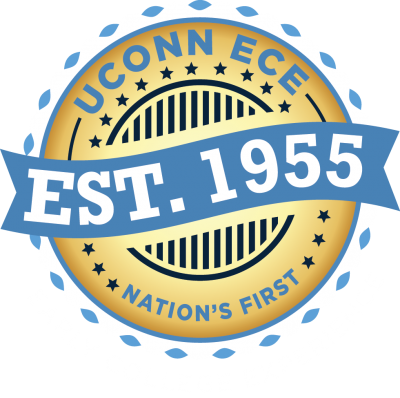- Course Catalog (PDF)
- Agricultural and Resource Economics
- Allied Health
- American Sign Language*
- American Studies
- Animal Science
- Anthropology
- Art
- Asian and Asian American Studies*
- Biological Sciences
- Business
- Chemistry
- Chinese
- Civil Engineering
- Classics & Ancient Mediterranean Studies
- Communication*
- Computer Science and Engineering*
- Digital Media & Design*
- Dramatic Arts
- Earth Sciences*
- Economics
- Education
- English
- Engineering
- French
- German
- History
- Human Development & Family Sciences
- Human Rights
- Italian Literature and Cultural Studies
- Kinesiology*
- Latino & Latin American Studies
- Marine Science
- Maritime Studies
- Mathematics
- Mechanical Engineering
- Music
- Natural Resources and the Environment
- Nutritional Sciences
- Pharmacy
- Philosophy
- Physics
- Plant Science
- Political Science
- Public Health
- Sociology
- Spanish
- Statistics
- University
Education
Explore the UConn Education website for departmental information. Course descriptions below correspond to the UConn undergraduate directory of courses.
Education Curriculum and Instruction | Educational Leadership | Educational Psychology
EDUCATION CURRICULUM AND INSTRUCTION
EDCI 1100: If You Love It, Teach It
Three credits ($150). Offered Fall, Spring, or Full-year.
Studies of K-12 teaching, learning, and schooling in the United States; historical, philosophical, and social foundations of education as well as self-study to reimagine educational futures.
Eligibility Guidelines: Successful completion of three years of high school English is recommended.
Instructor Certification Requirements:
The minimum degree requirement for instructors wishing to teach UConn EDCI 1100 through UConn ECE is a Master’s degree in Education or Curriculum and Instruction, or an administrative endorsement (092). Applicants should have at least three years of public school teaching experience.
Instructor Resources:
EDCI 1100 Sample Syllabus (PDF)
EDUCATIONAL LEADERSHIP
EDLR 1162: Health and Education in Urban Communities
One credit ($50). Offered Fall, Spring, or Full-year.
As an introductory course, EDLR 1162 explores the historical and social forces that shape health and education in urban communities, specifically in Connecticut. Topics of study will include poverty, culture, and identity and how these phenomena affect children’s health, nutrition, schooling and opportunities for success. Through readings, films, discussion, reflection and service‐learning opportunities, class members analyze policies, norms and beliefs in our society. Students will be challenged to consider how these trends may lead us to a more just society and how these may perpetuate injustice.
Eligibility Guidelines: Instructor consent is required.
EDLR 2001: Contemporary Social Issues in Sport
Three credits ($150). Offered Fall, Spring, or Full-year.
Socio-cultural, economic, political, and other related issues in sport. Sport as a social institution, the impact of sport in American culture, and the impact of American culture on sport. Sport at the youth, intercollegiate, professional, and international levels; how sport at these levels is experienced differently by individuals, communities, organizations, and society. Issues in sport relative to gender, race (ethnicity), differing physical and intellectual ability, sexual identity, and gender identity.
Eligibility Guidelines: Instructor consent is required.
Instructor Certification Requirements:
EDLR 1162: Health and Education in Urban Communities is typically a Master's degree in a related field. A Master's in an education or health related field of study would be ideal, but other degrees will be considered. The first year of certification is provisional, and the faculty course coordinator will mentor the UConn ECE Instructor and oversee implementation of the syllabus, instruction and service learning component of the course. Following the provisional period, certified instructors can gain full certification and work closely with the faculty course coordinator to offer this course. All applications must include a completed EDLR 1162 Service Site Info Form.
EDLR 2001: Contemporary Social Issues in Sport is typically a Bachelor’s degree in Sport Management or a related field, such as kinesiology, education, health, sociology, political science. Preferred applicants will have a Master's degree with relevant graduate work to sport management, education, health, sociology, political science. For this course, the first year of certification is provisional, and the faculty course coordinator will mentor the UConn ECE Instructor and oversee implementation of the syllabus, instruction and service learning component of the course.
In addition to the UConn ECE application materials, instructors interested in teaching EDLR 2001: Contemporary Social Issues in Sport should write an essay that is no longer than 3 pages that responds to the following question: Select a contemporary issue in sport that has pushed you to examine your beliefs about sport and society. Explain the impact that this issue has had on you, and how you would incorporate your learning from this contemporary issue into your UConn ECE course.
Instructor Resources:
EDLR 1162 Course Information (PDF)
EDLR 1162 Sample Syllabus (PDF)
EDLR 2001 Sample Syllabus (PDF)
EDUCATIONAL PSYCHOLOGY
EPSY 1100: Introduction to Special Education
Three credits ($150). Offered Fall, Spring, or Full-year.
Special education services in American education, including various exceptionalities and the roles of professionals.
Eligibility Guidelines: Instructor consent is required.
Instructor Certification Requirements:
The minimum degree requirements for teachers wishing to teach EPSY 1100 courses is a Masters degree in Special Education or Sixth Year certificate in special education and experience as a special education teacher. This course has a clear institutional approach with requires adherence to the UConn syllabus (See sample). In your cover letter, please speak to your background, experience, and your ability to implement the UConn curriculum at the high school.
Instructor Resources:
EPSY 1100 Sample Syllabus (PDF)

